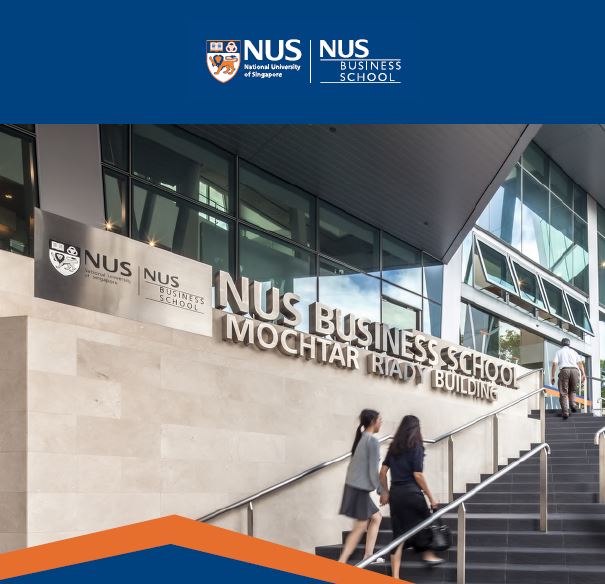NUS AMP 5 – Exploring the Digital Frontier

According to a Harvard Business School research paper, a substantive definition of the ‘business model’ is a collection of decisions enforced by the authority of the firm on its employees. There are two aspects of a business model – the internal constitution of the firm and the firm’s external alignment – and these are the result of the different degrees of authority a firm has over its employees as opposed to other market actors. A firm may make a variety of decisions regarding either its internal constitution or the types of transactions it facilitates. Conceiving of a business model in this way has a variety of benefits, including the ability to analyze discrete firm choices, according to the paper. According to a recent survey conducted by Harvard Business Review Analytic Services, 95% of global executives said digital transformation has grown in importance in their industry over the past 12 months; 90% said Covid-19 has accelerated the timing of their organization’s transformation efforts. This course provides an outlook for the digital business opportunities and covers the primer of digital transformation. The course emphasizes upon the digital marketing concepts and sets a foundation for learners in terms of applying a design thinking approach.
Course Learning Objectives:
- To truly become digital, we must think about digital-first and mobile-first businesses.
- Learn the fundamentals of design thinking approach.
- We need a solid digital strategy but also need strong digital leaders to implement the strategy.
- Familiarize yourself with the basics of digital transformation concepts with industry examples.
Faculty

Prof. Yoshi Mitsui
NUS Affiliate Faculty
As the CEO of an innovation advisory firm, he has worked with 40+ organisations on over 120 innovation projects. Some projects have received millions of dollars in funding, and others have spun off as new entities. To date, he has worked with and trained 2,500 innovators.
Yoshi holds advisory roles in multinational companies, charity organisations, social enterprises, and digital industry associations. He is also a mentor in several startup accelerators.
He has an MBA from the University of Melbourne and dropped out of a doctorate programme to start his own business. He has completed executive programmes at Harvard Kennedy School, IMD and MIT.
Syllabus
Module Components:
Description: Digital and mobile-first business models are reshaping industries, changing how companies attract, engage, and retain customers. This session explores what it takes to build and scale a business designed for a digital-first world. Using the Robinhood case, we’ll examine how fintech disruptors use technology to create seamless customer experiences, drive rapid growth, and challenge traditional players. Participants will gain insights into key success factors like user acquisition, platform design, monetization, and competitive advantage—lessons that apply across industries.
Video Lectures:
- Problems First
- Digital Business Models
- YouTube Video: How Robinhood Gets Casual Traders Hooked
Readings:
Case Study – Robinhood: Welcome to the New Wall Street? (Darden, University of Virginia, 2024)
Quiz:
- Digital & Mobile-First Business Models
Module Components:
Description: In today’s fast-changing digital economy, leadership goes beyond adopting new technologies—it requires bold vision, strategic agility, and the ability to create real value for digital-first customers. This session explores both individual and organizational leadership in the digital era, using the TrustBank case to examine how a joint venture between Standard Chartered Bank and FairPrice Group is redefining banking. We’ll discuss how digital leaders challenge traditional boundaries, take smart risks, and build customer-centric businesses. Participants will gain insights into leading with innovation, making bold decisions, and creating a strong competitive edge in an increasingly digital world.
Video Lectures:
- Digital Mindset
Readings:
- Coding Isn’t a Necessary Leadership Skill – But Digital Literacy Is. Sophia Matveeva. HBR. 26 July 2022
- Case Study – Trust Bank – How Trust Bank is Redefining the Landscape (NUS, 2025) (NEW)
Quiz:
- Digital Leadership
Module Components:
Description: For organizations that have already embarked on their digital transformation, the next challenge is scaling, sustaining, and embedding AI at the core of the business. This session explores how DBS Bank, a global leader in digital banking, is accelerating its AI-driven transformation. Using the DBS AI Journey case, we’ll examine how the bank has integrated AI into its operations, culture, and decision-making to stay ahead in the digital era. Participants will gain insights into the leadership, strategies, and execution required to not only embrace AI but also transform an entire organization to thrive in an AI-first world.
Video Lectures:
- Digital Transformation
- Digital Startups
- YouTube Video: Siew Choo Soh, DBS – Digital Transformation in the Banking Industry, SpringOne Platform
Readings:
- Case Study – DBS’ AI Journey (Harvard Business School, 2024) (NEW)
Quiz:
- Accelerating Digital Transformation
